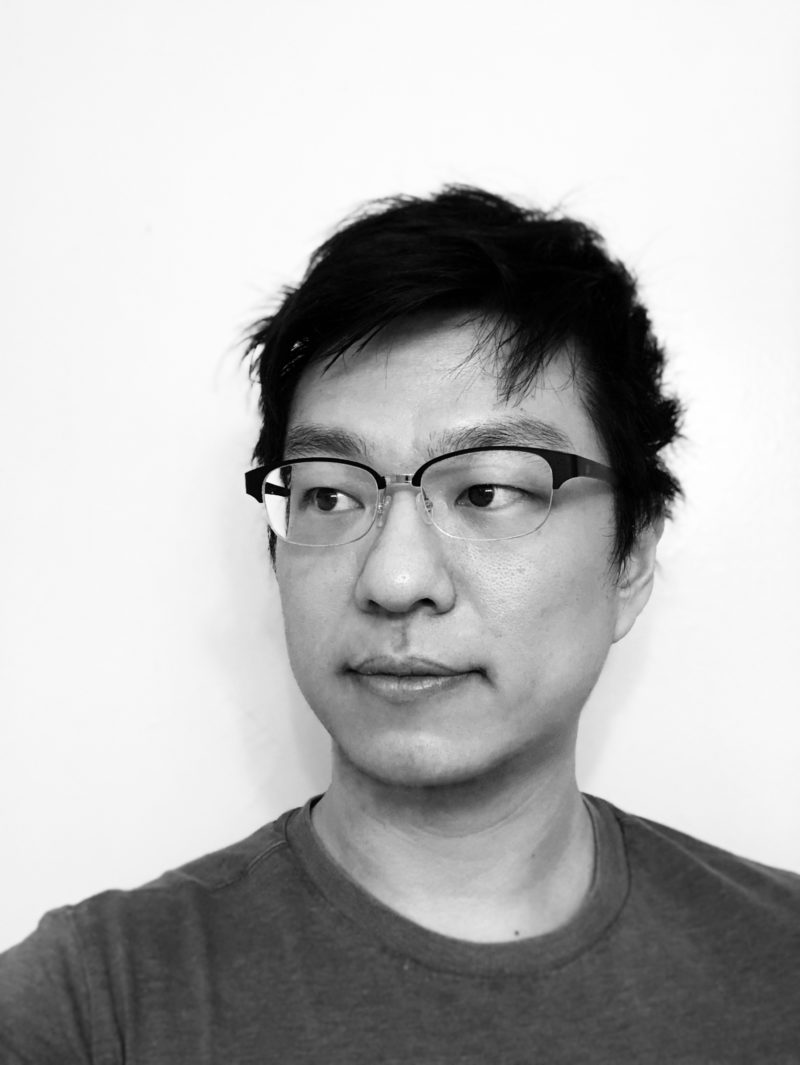Why are you specifically interested in translating poetry instead of prose?
I think that translating a sentence in prose often takes as much energy as translating a line of poetry. Or that’s the kind of translation I would like to do with a work of prose, and a book-length project—even a story-length project—would be quite a commitment. I do feel more comfortable experimenting, playing around, in poetry, and I also enjoy the particular challenges that a prose poem presents. The speaker of Lee Young-ju’s poems is a terrific narrator, so it’s important for the sentences to be feel accessible even as they carry the weight of her thoughts and marry the different threads in the poems.
How did you come to work on translating this project?
One of the poems in the book, “Mama’s Marmalade,” was the first poem I ever translated. I read it online in Munjang Webzine, and I translated it in order to give my partner an idea of what I’d just come upon, in order to share the excitement. I was curious, too, to see whether the excitement was mostly due to my being Korean, if there would be a sensibility barrier. There wasn’t—or at least the poems allowed someone who didn’t have my background to engage with them. I remember feeling a sense of affinity between my writing and Lee’s. I knew I could do her poems justice. I liked some of her poems more than others, and I translated the poems I liked. I published them in journals, and at some point it made sense to put together a manuscript of selected poems.
What was the hardest thing to preserve when translating these poems from the original Korean (tone, rhyme, meter, sound, word choice, etc.)?
I think what I learned over the last few years is that “preserving” is not the right way to think about translation. Or maybe I was too concerned with preserving things in the beginning. There’s the academic way of thinking about it, which is almost cliché—those schools of thought against the idea of preservation and correspondence—but I’m not opposed to preservation for the same reasons necessarily. It’s about perspective, I think. When I first fall in love with someone’s work, I lose perspective, and any translation I try seems inadequate. The solutions I reached for then, in the beginning, were the most syntactically dense ones that I later found hindered the voice. Some of the sentences were sentences I would never write as a writer. But it’s hard to see that in the moment. Attaining that perspective took time, years of being dissatisfied with the drafts. The process was necessary, I’m sure. I certainly wouldn’t want to be coming from the other end of the spectrum, where the translated voice sounds complacent, making no attempt to preserve any aspect of the source text—to challenge the English language—with every part of speech in its most comfortable spot. I prefer clumsy preservation of everything to no preservation at all, and once I’m distant enough to gain perspective, I can see what I was trying to do in that clumsy mess.
To what extent would you say translation is an act of creation in and of itself?
Translation is an act of creation. Being inspired by an experience to write is no different from being inspired by a text to write. The latter comes with more constraints, and you owe a great deal to the writer of the source text. But even in the former case, where you’re just writing, you owe a great deal to those writers you read and admire. What you owe them is respect. Where a translator runs into trouble, and thereby gives credence to the question of whether translation is creation, is if they forget what they owe. Which can lead them either to disregard the source text or to preserve it in a lifeless manner. I should recognize that willfully disrespectful translation, perhaps of a work that’s widely considered canonical, can be a powerful tool for disruption and reappropriation—but in such a case there should be no question that translation is an act of creation.
Intimately
by Lee Young-ju, translated by Jae Kim
When I was young, my aunt told me the name of the woman who goes to the public cemetery to meet her lover. Having cut off a piece of the hemp cloth covering the lover’s face, she carries it in her pocket, my aunt said. As though her life was the fact of his absence. In the middle of a warm summer, I used to sleep under a hemp blanket. In the summer you have to be friends with frightening dreams, my aunt said, and you have to call on each ghost by name. How do I catch the woman’s name when it shapeshifts every day? Falling asleep next to me, carrying my sleep beside me were beautiful geometries. I drooled on the hemp blanket on those warm nights, and the slobbered, wet blanket slid down past my feet. It crawled out to find the lover’s facecloth tucked away outside the door. My feet were bare. Blue blood ran through my soles, and I felt strangely confident that the clouds could be touched if I managed to fall asleep. That within the dead lover’s name I would discover what was beyond our senses. I don’t believe anything’s untouchable. Except the man who has become a ghostly lover, his fingers growing long and his toes growing sharp under a burned tree. Rub your stomach through the hemp blanket, and you’ll feel a breeze. If it’s still too warm, you step outside time, barefooted. My aunt’s crying where the road begins. I have to make friends with a frightening real world.

Jae Kim is a fiction writer and the translator of Cold Candies: Selected Poems of Lee Young-ju. His work has received support from the National Endowment for the Arts and the Tulsa Artist Fellowship and appears in Noon, Poetry, Conjunctions, Granta, and elsewhere.